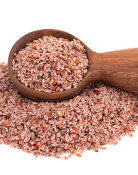Amnesty for cholesterol
Rich in nucleic acid and calcium, anchovy produced in Yeosu is healthy food that lowers cholesterol, Seaweed fulvescens is good for preventing adult-onset diseases with abundant alginic acid that brings down neutral fats and cholesterol in the body, Taurine contained in oyster brings down blood cholesterol. All these statements make us believe cholesterol is a harmful substance that we should refrain from eating. It was in 1961 when the American Heart Association made an official warning of cholesterol can cause adult-onset diseases such as cardiac disorders that cholesterol began to be considered a villain.
At the end of 2014, the U.S. daily Washington Post reported that the U.S. Dietary Guidelines Advisory Committee made a final conclusion that cholesterol intake from foods has little effect on the level of blood cholesterol. This means that most American people who already eat eggs for their breakfast can even add shrimp and crawfish for their morning menu as they do not increase the level of blood cholesterol or the risk of heart diseases. If the U.S. government accepts the committees conclusion and revises the Dietary Guideline for Americans this year, the cholesterol will be cleared itself of the charge of being a bad substance in 54 years.
Food additives such as saccharine and monosodium glutamate (MSG) have long been believed as harmful substances. Containing three-hundred times of higher sugar content than sugar with relatively cheaper price, saccharine has long been avoided by many people as carcinogens. Abundant study results on its safety, however, had been produced and finally in 1993, World Health Organization officially recognized its safety. U.S. President Barack Obama pinpoints the case of saccharine as a food regulation that went wrong. Some still distrust the safety of savory-adding MSG while academic circles contend its safety. It is time for cholesterol to join the ranks of safe food.
A representative food that contains high cholesterol is egg yolk. A single egg yolk holds 200 milligrams of cholesterol, which is two-thirds of Americas daily recommended allowance of 300 milligrams or lower. Translated into 100 grams, it contains 1300 milligrams of cholesterol, which is higher than tripe of pigs and cows with 190 milligrams and salted pollack roe with 350 milligrams. It seems that egg consumption will be on the rise when cholesterol becomes innocent of harmful substance. It is still recommended that patients with certain medical conditions such as diabetes keep away from cholesterol.
Headline News
- N. Korea redefines S. Korea as ‘hostile state’ in revised constitution
- Samsung develops graphic DRAM with industry-leading capacity and speed
- Three questions allegedly leaked via text message during Yonsei Univ. essay test
- China to inject 340 trillion won in loans to support real estate sector
- Dodgers beat Mets to take 2-1 lead in NLCS







